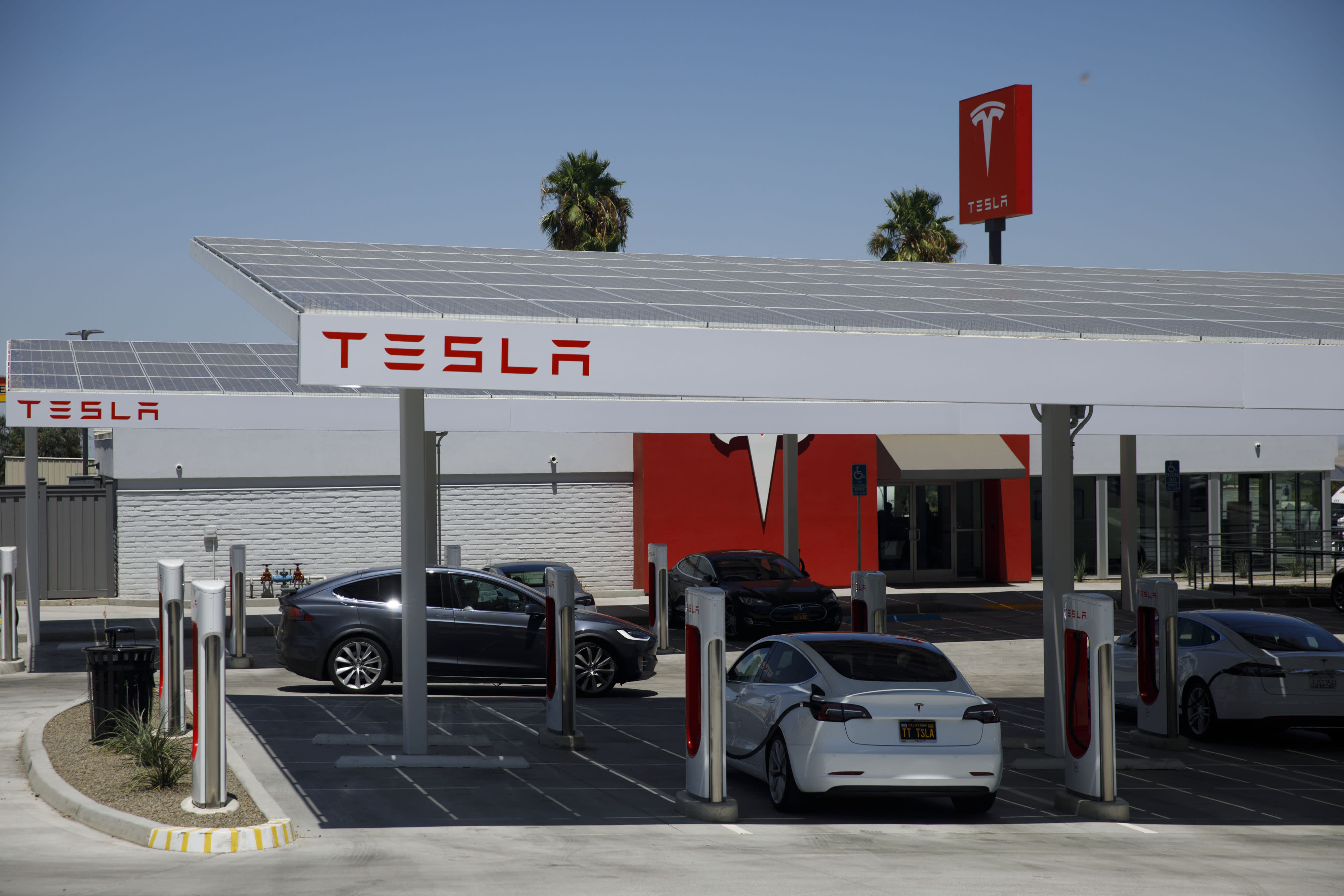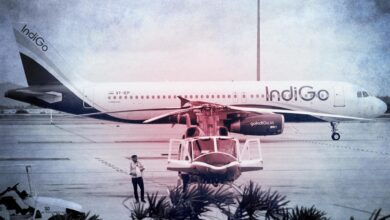Vivek Wadhwa Said That He would Never Buy A Tesla Again
He said, "I referred to him as a friend. Maybe he wouldn't, but I called myself one. He is the modern era's greatest innovator, and I will always say that".

The self-described “Tesla fanboy” and Indian-American businessman Vivek Wadhwa is now second-guessing his ardent support for Elon Musk’s electric vehicles. In the past, Vivek Wadhwa, a Washington Post columnist and scholar who has held positions at Stanford University, Harvard University, and Carnegie Mellon, has vehemently backed Musk and Tesla. After initially meeting Elon Musk for an interview in 2013, he said that he thought of the billionaire as a buddy.
In their private conversation, Musk informed Vivek Wadhwa of his desire to spend his golden years on Mars. Wadhwa claimed that Musk impressed him and that he talked to him frequently in the years that followed. He said, “I referred to him as a friend, Vivek Wadhwa said to Insider. Maybe he wouldn’t, but I called myself one. He is the modern era’s greatest innovator, and I will always say that”.
But after at least two occurrences using Tesla’s Full Self-Driving mode (FSD), which has drawn attention due to safety concerns, he is now warier. Vivek Wadhwa acknowledged to Insider that he was a Tesla Model S purchaser. Later on, he sold it to get a new vehicle with Full Self-Driving capability. He claimed that when he activated the Summon function on his Tesla one day, it smashed into his garage. Another incident included the car nearly colliding with a road. Wadhwa remarked, “It truly shook me tremendously. That might have been the first Autopilot crash captured on camera if I hadn’t jammed on the brakes.

Frequent Accidents Of Tesla And Vivek Wadhwa’s Stand
The US Department of Transportation reported 605 crashes involving vehicles with advanced driver assistance systems (ADAS), sometimes known as autopilot, between July 2021 and October 2022, and 474 of those crashes involved Teslas or 75% of all crashes. This is not the first time that Tesla’s ground-breaking autopilot technology has been connected to tragic car accidents, and it is also not the first time that the company has brushed off claims that it’s software or hardware may have contributed to the disaster. Examining self-driving vehicles
Since June 2021, all automakers and vehicle technology companies have been required to report “timely and transparent notification” of any traffic accidents involving automated or advanced driver assistance systems. This order comes from the National Highway Traffic Safety Administration (NHTSA), the travel agency of the US Federal government.
18 fatal collisions out of the 600 or so reported since last summer, the majority involving Tesla vehicles—two of which were reported to NHTSA in September and October this year—have resulted in fatalities. The agency has also improved its 830,000 defective Tesla automobiles under special scrutiny since June.
Since a few years ago, there have been an increasing number of fatalities and near-fatalities associated with Tesla autopilot, many of which Elon Musk’s firm has disputed responsibility for or been sued for defamation over.
Joshua Brown, 40, was killed in the first incident associated with Tesla’s self-driving technology in 2016 when his Model S autopilot crashed into a white 18-wheeler after its sensors failed to recognize the trailer against the bright sky. Brown was killed when “the force of the impact tore off the top of his automobile.”
Another three people perished in two separate Tesla autopilot accidents last year; in both cases, self-driving Model S cars veered off the road and caught fire after colliding with trees. As reported, it’s possible that at least one of the passengers was killed in the fire rather than in the crash because they couldn’t open their door in either scenario, raising concerns about the lithium batteries and operating system of the cars.

Tesla has expressed its sorrow in connection with these tragedies, but the main takeaway from their comments has been about placing blame elsewhere. An advocacy group revealed in a research published in August of this year that some Tesla vehicles operating in the self-driving mode were unable to recognize youngsters on the road.
As the number of Tesla-related accidents has risen, many have speculated that the company’s marketing approach may be partially to blame, as enhancing the automated functionality to the point where it absolves drivers of responsibility may cause them to become careless and overly reliant on the autopilot capabilities of the vehicle.
Human Beings Undermined By Autopilot
Kevin George Aziz Riad is now awaiting trial after colliding with another car in 2019 while driving a Tesla Model S, killing two persons inside. This is the first case to attempt to navigate the challenging environment of human agency in self-driving automobiles. On the surface, Riad’s predicted outcome is clear-cut, but given that his car was operating on autopilot when it crashed, the jury must decide: “Who’s at fault, man or machine?” said law professor and expert on self-driving cars Edward Walters.
Although there criminal charges are pending in Tesla as a result of the incident, the crash’s nature has opened up a much-needed dialogue on the philosophical question of the driver. As more manufacturers provide autopilot and autonomous technologies, the subject of car autonomy is bound to come up repeatedly. The recent deadly crash in China, this important California case, and several other instances of autopilot-related traffic accidents all highlight the urgent need for greater information on the safety of self-driving car technologies.
However, in addition to posing concerns about autonomy, accountability, and safety, these reports have also given consumers and autonomous vehicle companies a platform to discuss which is more reliable while operating a car: humans or technology.

Views Of Vivek Wadhwa
Vivek Wadhwa has argued for increased diversity in the tech sector. In addition to women, Wadhwa calls for increased involvement of African Americans, Hispanics, and elderly people in her studies, papers, and public debates. Wadhwa is quoted as saying in an MSNBC piece by Alicia Maule from November 14, 2014: “The state of venture capital is dire. Because it has historically been a boys’ club, which is not the model that should be adopted, it generates minimal profits. Men and women are necessary. Diversity is fun for invention, whether it be Latino or African-American.”
Vivek Wadhwa has studied both young and old entrepreneurs and asserted that older entrepreneurs typically had greater success. He has argued in various papers that VCs ought to fund them. Vivek Wadhwa has researched engineering education in India, China, and the US. He has argued in many articles that US education is superior and that education is important for US competitiveness.
Vivek Wadhwa has conducted a study on engineering programs in China, the US, and India. In a number of his essays, he has made the case that US education is superior and that it is crucial for US competitiveness.
Higher education has been defended as valuable by Wadhwa. He argued the value of academic education with Henry Bienen and Peter Thiel, who established the Thiel Fellowship to give $100,000 to students who left college to start businesses. At an Intelligence Squared debate in Chicago that was carried on NPR stations, Vivek Wadhwa argued against Thiel and Charles Murray. Vivek Wadhwa claimed that a fundamental college education is vital and helpful because it teaches abilities, particularly social skills, and the skills to put an idea into reality, in the 60 Minutes segment “Dropping Out: Is College Worth the Cost?”

According to Vivek Wadhwa, this decade will be the most innovative in history. He asserts that “today’s technology is swiftly catching up to Star Trek” and that 3D printers could eventually allow for the synthetic creation of objects. The Future of Work and Death, a 2016 documentary, featured him. Vivek Wadhwa made it clear that his issue was limited to FSD and that he continued to think highly of Tesla as a “beautiful” vehicle.
Vivek Wadhwa remarked, “I didn’t get the Full Self-Driving that I was promised, and I feel misled. “It still has a lovely appearance. My next vehicle, though, won’t be a Tesla. There is no chance.” In addition, Vivek Wadhwa declared that he would swiftly join any class-action case over FSD mode. In addition, he demanded a refund of the $15,000 he paid for the device.
“The audience voted strongly in favor of Mountain View and against Wall Street” at the debate’s end. Steve Wozniak, a co-founder of Apple, has criticized Tesla and Musk for “misleading” customers. Wozniak admitted to CNBC that since 2016, he has spent a significant amount of money on self-driving technologies.
Wozniak claimed, “They have stolen so much money from my family—me and my wife—with things they mentioned that we honestly felt would be real. “When you look at Elon Musk and Tesla, a lot of honesty vanishes.” According to Tesla, for its Full Self Driving Capability and Autopilot mode to function, the driver must be fully focused, have both hands on the wheel, and be prepared to take control at any time. Authorities claim that at that point, the term “full self-driving” is deceptive. The US Department of Justice is looking into Tesla’s driving assistance technologies. They are also being examined by the National Highway Traffic Safety Administration.
Edited by Prakriti Arora






